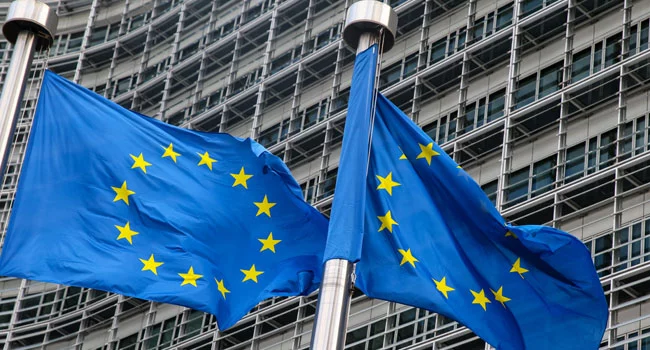BRUSSELS, June 18 (ABC): Europe sent a powerful symbol of solidarity with Ukraine on Friday, when Brussels backed Kyiv’s bid for EU candidate status, even as Russia shelled frontline Ukrainian cities and cut back gas supplies to the West.
With the European Commission’s backing, Ukraine could now be added to the list of countries vying for EU membership as early as next week, when member state leaders meet at their Brussels summit.
All 27 EU leaders will have to agree to the candidacy, but the heads of the European Union’s biggest members — France, Germany and Italy — already gave their full-throated support to the idea on Thursday, on a trip to a war-torn suburb of Kyiv.
Then on Friday, the European Commission gave the executive’s formal backing to the bid, and EU chief Ursula von der Leyen made her position clear by donning a striking jacket in Ukraine’s national colours.
“We all know that Ukrainians are ready to die for the European perspective. We want them to live with us for the European dream,” she said.
Ukraine’s President Volodymyr Zelensky immediately welcomed the decision as a “first step on the EU membership path that’ll certainly bring our victory closer”.
He thanked von der Leyen for the commission’s “historic decision” and said he expected that EU leaders would give Ukraine a “positive result” at the June 23 to 24 summit.
Once Ukraine joins the EU candidates’ list — alongside several countries in the western Balkans — it could still take years to meet all the formal membership requirements, even if Kyiv prevails in the war.
“Yes, Ukraine should be welcomed as a candidate country — this is based on the understanding that good work has been done but important work also remains to be done,” von der Leyen said.
And in the meantime, the fighting continues, with Russian forces bombarding Ukrainian pockets of resistance in frontline Severodonetsk, including civilians holed up in a chemical plant in the eastern Ukrainian city.
And Moscow turned up the pressure on the Western allies, sharply reducing flows of natural gas in its pipelines to Western Europe, driving up energy prices.

